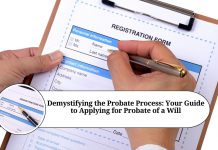In the vast world of business, various legal structures exist to accommodate different types of enterprises. One such structure is a proprietorship firm. A proprietorship firm is a popular choice for small businesses and solo entrepreneurs due to its simplicity and ease of setup. In this blog post, we will delve into the concept of a proprietorship firm, explore its characteristics, advantages, and limitations, and provide valuable insights for aspiring business owners.
What is a Proprietorship Firm?
A proprietorship firm, also known as a sole proprietorship, is the simplest form of business organization where a single individual owns and manages the entire business. It is not a separate legal entity distinct from its owner. The proprietorship firm and the owner are considered as one and the same for legal and tax purposes.
Characteristics of a Proprietorship Firm:
- Single Ownership: A proprietorship firm is owned by a single individual who has complete control over the business operations and decision-making process.
- No Legal Formalities: Unlike other business entities, a proprietorship firm does not require any formal legal registration or documentation. The owner can operate the business under their own name or choose a trade name.
- Unlimited Liability: The owner of a proprietorship firm has unlimited personal liability. This means that the owner’s personal assets can be used to settle any business debts or obligations. The business and personal finances are not separate in the eyes of the law.
Advantages of a Proprietorship Firm:
- Easy and Inexpensive Setup: Establishing a proprietorship firm is straightforward and does not involve complex legal procedures. The costs associated with registration and compliance are relatively low compared to other business structures.
- Complete Control: As the sole proprietor, you have full control over all aspects of the business. You can make decisions quickly and implement changes without consulting others.
- Tax Benefits: In many jurisdictions, the income from a proprietorship firm is taxed at the owner’s personal tax rate. This often results in lower tax obligations compared to other business structures.
- Flexibility: Proprietorship firms offer flexibility in terms of business operations and decision-making. The owner can adapt the business strategy and direction as per their vision and requirements.
Limitations of a Proprietorship Firm:
- Unlimited Liability: The owner’s personal assets are at risk in case of business liabilities or debts. This can pose a significant financial risk, especially if the business faces legal issues or bankruptcy.
- Limited Capital and Resources: Proprietorship firms may face challenges in raising significant capital since the owner’s personal funds are primarily utilized. Expanding the business or attracting external investment can be more challenging.
- Limited Expertise: As a sole proprietor, you may face limitations in terms of knowledge and expertise. Handling all aspects of the business can become overwhelming, especially when dealing with complex matters such as legal compliance or financial management.
Conclusion
A proprietorship firm provides a straightforward and flexible option for individuals looking to start their own business. While it offers advantages such as ease of setup, complete control, and tax benefits, it also comes with certain limitations, including unlimited liability and limited access to capital. Before choosing a proprietorship firm as your business structure, it is essential to carefully consider your goals, risk tolerance, and long-term plans. Seeking professional advice can help you make an informed decision and ensure compliance with local laws and regulations.
Frequently Asked Questions (FAQs)
Q: What is a proprietorship firm?
A: A proprietorship firm, also known as a sole proprietorship, is a type of business structure where a single individual owns and manages the entire business. It is the simplest form of business organization, where there is no legal distinction between the owner and the business itself.
Q: Is registration required for a proprietorship firm?
A: In most jurisdictions, registration is not required for a proprietorship firm. The owner can operate the business under their own name or choose a trade name. However, it is advisable to check the local regulations to ensure compliance with any specific registration or licensing requirements.
Q: What are the advantages of a proprietorship firm?
A: Some advantages of a proprietorship firm include:
Easy and inexpensive setup.
Complete control over the business.
Tax benefits, as income is often taxed at the owner’s personal tax rate.
Flexibility in business operations and decision-making.
Q: What are the limitations of a proprietorship firm?
A: Some limitations of a proprietorship firm include:
Unlimited personal liability, where the owner’s personal assets are at risk in case of business debts or liabilities.
Limited access to capital, as raising significant funds can be challenging.
Limited expertise, as the owner may face difficulties in handling all aspects of the business, especially complex matters like legal compliance or financial management.
Q: Can a proprietorship firm hire employees?
A: Yes, a proprietorship firm can hire employees. However, the legal and financial responsibilities of the business remain with the owner, including liabilities arising from employee actions.
Q: Can a proprietorship firm be converted into another business structure?
A: Yes, a proprietorship firm can be converted into a different business structure, such as a partnership or a company, if the owner wishes to expand or change the business entity. The conversion process typically involves fulfilling legal requirements and necessary documentation.
Q: Can a proprietorship firm have multiple owners?
A: No, by definition, a proprietorship firm has only one owner. If multiple individuals want to start a business together, they would need to consider forming a partnership or another suitable business structure.
Q: Can a proprietorship firm continue after the owner’s demise?
A: Generally, a proprietorship firm cannot continue after the owner’s demise. Since the owner and the business are not legally separate, the business typically ceases to exist upon the owner’s death. However, local laws may have provisions for the transfer or succession of a proprietorship firm in certain cases.
Q: How are taxes paid in a proprietorship firm?
A: In many jurisdictions, the income of a proprietorship firm is treated as the owner’s personal income for tax purposes. Therefore, the owner reports and pays taxes on the business income as part of their personal tax return. It is advisable to consult with a tax professional to understand the specific tax obligations in your jurisdiction.
Q: Can a proprietorship firm be converted into a corporation?
A: Yes, a proprietorship firm can be converted into a corporation if the owner wishes to change the business structure. The conversion process typically involves fulfilling legal requirements, such as registering the corporation and issuing shares, among other necessary steps. Professional guidance and legal advice are recommended for a smooth conversion process.































